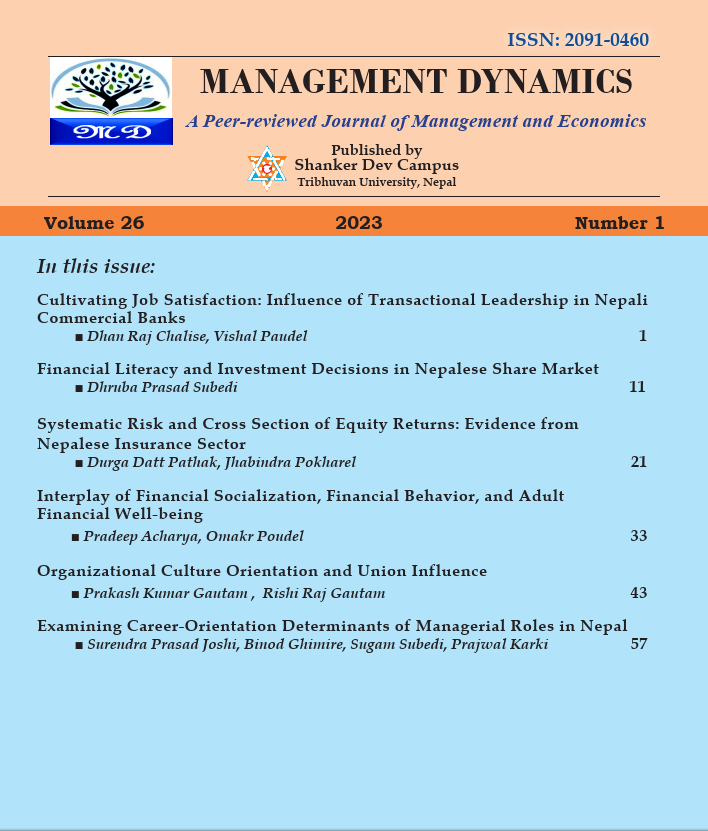Systematic Risk and Cross Section of Equity Returns: Evidence from Nepalese Insurance Sector
DOI:
https://doi.org/10.3126/md.v26i1.59148Keywords:
Asset pricing, Equity returns, Investment rate, Leverage, Panel data, Systematic riskAbstract
This research analyzes the impact of firm-specific characteristics on the cross-section of equity returns of insurance companies in Nepal. For this purpose, the study used 22 insurance companies listed in the Nepal Stock Exchange (NEPSE), comprising seven life and 15 non-life insurance companies. To make a balanced panel, those companies are selected as samples that have completed at least seven years of operation until the end of 2021 and are listed in NEPSE. The secondary data from 2015 to 2021 is analyzed using panel regression models. The Breusch-Pagan and Hausman tests are used to select the best panel model, and the random effect model is the best estimation model. The study reveals that systematic risk associated with the stock can explain the stock’s risk premium, proving that the notion of CAPM holds in the context of Nepal as stock beta is positive and significant in all tested models. Similarly, the book-to-market ratio is found to be negatively affecting the stock return. On the other hand, earning yield positively affects the stock return, and firm size negatively impacts equity returns. However, the investment rate and leverage are insignificant to affect equity returns. Therefore, stock investors are recommended to select alternatives based on systematic risk, earnings yield, and BM ratio. The findings also suggest to corporate policymakers that merger and acquisition cannot maximize shareholders’ wealth because it only increases paid-up capital, and this leads to decreased equity returns due to an increase in the book-to-market ratio and size of the firm.
Downloads
Downloads
Published
How to Cite
Issue
Section
License
Copyright © Research Management Cell, Shanker Dev Campus

